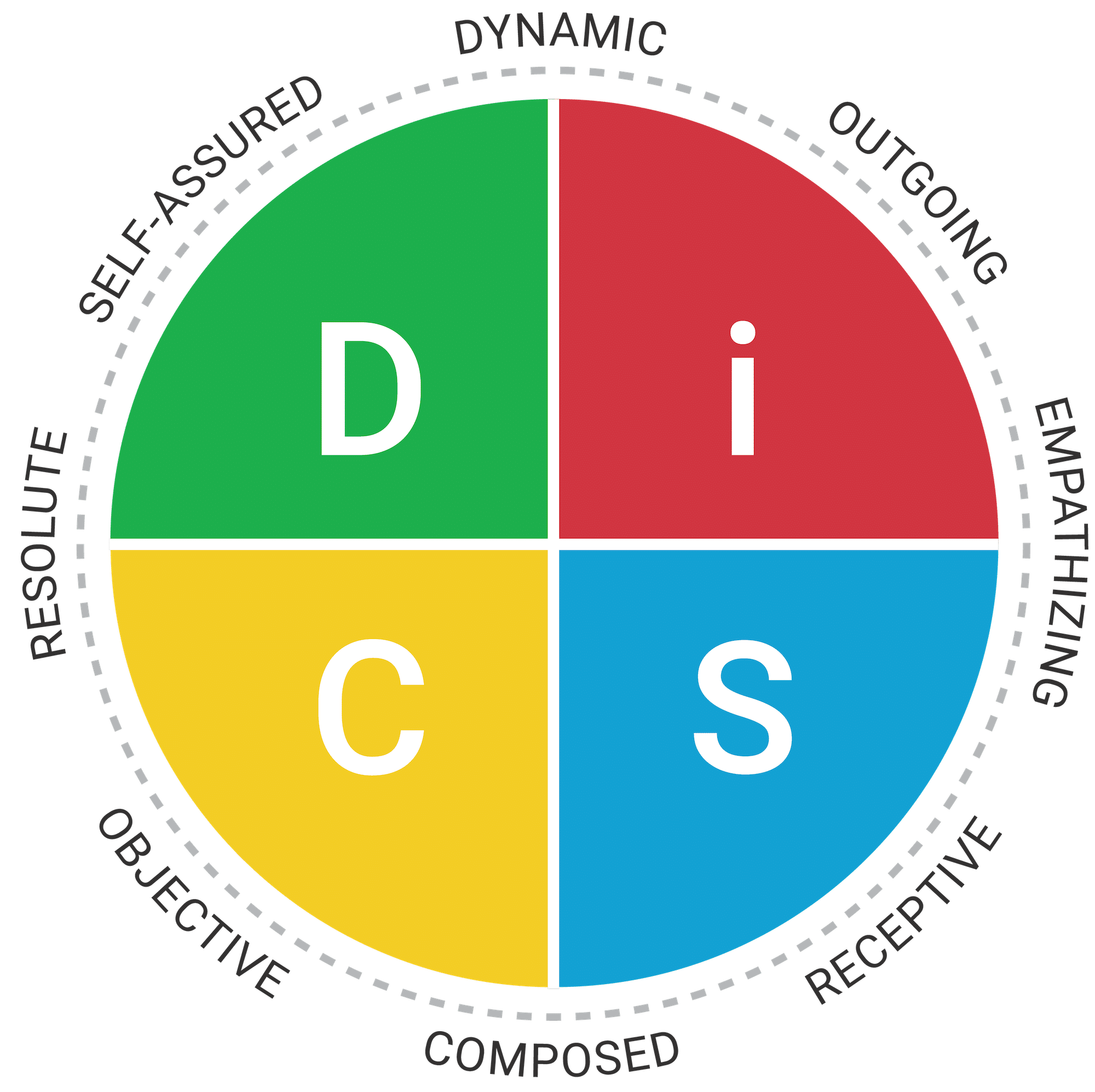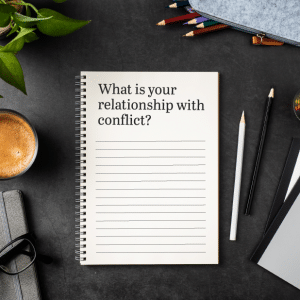What Is Self-Awareness – and Can It Be Learned?

Key Takeaways
- Learn a self-awareness definition and how it differs from emotional intelligence.
- Understand types of self-awareness and how they impact interpersonal skills.
- Gain tools for developing self-awareness in individuals, leaders, and groups.
What is self-awareness?
Self-awareness is the ability to understand your own thoughts, emotions, and behaviors, and how they impact yourself and others. Self-awareness is the first competency listed in Daniel Goleman’s well-known model of emotional intelligence (EQ). This skill is a cornerstone of personal and professional growth. By developing self-awareness, you can make better decisions, build healthier relationships, and lead with authenticity.
Self-awareness vs. emotional intelligence
While self-awareness and emotional intelligence (EQ) are closely related, they are distinct concepts. Self-awareness is the foundation of emotional intelligence, encompassing a person’s ability to understand their emotions, motivations, and reactions.
Emotional intelligence includes self-awareness but expands to encompass empathy, social skills, and the ability to adapt to different interpersonal situations. In the Everything DiSC® Agile EQ™ model, an emotionally intelligent person can recognize the best approach for each situation. They then adjust their own mindset accordingly, even if it’s not the approach that is their first instinct.

Everything DiSC Agile EQ model
Self-awareness examples
Self-awareness might look like:
- Recognizing your emotions and being able to label them accurately.
- Understanding your strengths, natural talents, and limitations.
- Identifying your values and thinking about how they do or should influence your choices.
- Acknowledging your biases and prejudices.
- Learning what types of unhelpful or destructive thoughts are common for you, and recognizing them when they arrive. In the Cognitive Behavioral Therapy model, thoughts trigger emotions, which trigger behaviors.
- Recognizing patterns in your behavior and social interactions.
- Understanding how your past shapes your present mindset.
- Recognizing when social pressures influence you.
- Being aware of your impact on others.
- Learning what stresses you out and how you react to stress.
- Getting familiar with your natural communication style and how it may differ from the preferred communication style of others.
- Being aware of your body language and non-verbal cues during interactions.
- Identifying patterns in self-talk (your inner monologue, or how you talk to yourself in your mind).
- Understanding your body-mind connection. This could mean learning which foods are more likely to keep you from getting hangry in a meeting. Or how your particular body (and thus, mind) reacts to long periods of sitting or standing. Perhaps you're navigating a larger shift in the body-mind connection, such as menopause, illness, or a new athletic endeavor.
Can self-awareness be learned?
Some individuals may naturally possess a higher level of self-awareness. However, self-awareness is a skill anyone can learn and cultivate over time. It requires a willingness to engage in self-reflection, open-mindedness, and a commitment to personal growth.
Introspection alone is not enough. Organizational psychologist Tasha Eurich and colleagues studied 5,000 participants. They found that people who introspect—who reflect internally on the causes of their thoughts, feelings, and behaviors—are actually less self-aware than people who don’t.
“The problem with introspection isn’t that it is categorically ineffective — it’s that most people are doing it incorrectly,” said the researchers. People tend to ask Why questions: “Why did I behave that way?” “Why don’t I like that person?” But often those answers are outside our conscious awareness, so “we tend to invent answers that feel true but are often wrong.”
Why questions also tend to lead to unproductive negative thoughts and ruminations. The researchers suggest asking what, not why questions. They give the example of a self-aware person they interviewed who disliked his job. Instead of thinking, “Why do I feel so terrible?,” he asked, “What are the situations that make me feel terrible, and what do they have in common?”
Tools for self-awareness
So if just thinking about yourself isn’t an effective path toward self-awareness, what is? Working with a coach, mentor, or peer is a great way to get an outside perspective. It can help you see more objectively how you appear to others (external self-awareness). In addition, talking through your internal self-awareness—having to articulate and discuss your perceptions of yourself rather than ruminating on them—can give you clarity that’s hard to gain on your own.
Another self-awareness tool is a personality assessment such as Everything DiSC. These robust assessments use computerized adaptive testing methods. These ensure meaningful results, even if the individual doesn’t feel self-aware when starting the questionnaire. And the 20+ page reports cover both the why and the what of respondents’ dispositions.
For example, the Everything DiSC Workplace® report for an S-style person might discuss fundamental priorities such as helping other people and maintaining harmony. These priorities are the why. Then, the report digs into how those priorities manifest in specific motivators and stressors (the what).
From self-awareness to self-improvement
Once you have gained more conscious awareness of your character and motivations, you can use that knowledge. Greater self-awareness allows you to make changes in your life to better match your vision. It can improve your interactions and relationships with other people.
Executive coach Jennifer Porter writes about the importance of self-management: taking that step from recognizing your natural tendencies to learning when a different approach may be better and acting on that knowledge. She writes:
This process Porter writes about is part of each Everything DiSC® profile. Everything DiSC is not just a descriptive “this is who you are” report. The report is a tool that puts your personality in context. It helps you interact with people who have different personality types.
Self-awareness for leaders
Leaders often face unique challenges when developing self-awareness. They are vulnerable to “CEO disease,” an oblivious state that stems from the feedback vacuum surrounding many higher-ups. People can be reticent to share their opinions with those in leadership. Unless a leader seeks out honest feedback from many sources, they can start relying too much on their own perceptions.
Leaders serious about personal development must make a habit of testing their assumptions by seeking counsel and exploring implications. Try these tips from the book The Work of Leaders: How Vision, Alignment, and Execution Will Change the Way You Lead:
- Find people you trust to consult with and reciprocate with them.
- Approach people individually rather than as a group.
- Look outside your group or organization to find fresh perspectives.
- Create an open and relaxed environment to welcome dialogue.
- Practice reflective listening.
- Make sure your tone of voice and body language come across as receptive.
- Look for signs of people just telling you what you want to hear; then encourage more honest feedback.
- Create a culture of candor and trust by acknowledging your own mistakes.
The Everything DiSC Work of Leaders® assessment uses the model outlined in the book. It provides a leadership development plan that includes feedback-gathering in each phase.
Read more: Uncover your leadership blind spots
Self-awareness activities for groups
Just as individuals have personalities, groups develop a communal personality of their own. (Read more about the different types of group personalities or cultures.)
Self-awareness should be a frequent topic of discussion in any workplace or similar group environment. When you have a group together, try these activities aimed at improving individual self-awareness, communication between different personality styles, and awareness of the personality of the group as a whole.
#1. Reading body language: Try this exercise to help team members learn more about their own body language tendencies. Discuss how group members read body language differently.
#2. What are our values?: Share this list of values. Have each person take a few minutes to select one to three values that are most important to them, personally, and write about why. Then have them select the three values they think the team sees as most essential, and why. Have everyone share their individual values and perceived team values, and lead a discussion about:
- What different individual values are represented on our team, and what might that mean for working together?
- Where did our individual values differ from our team values, and why?
- Did most people choose similar values for the team, or was there a lot of variance? How can we become more aligned on the values of our team and how they guide our work?
#3. Time travelers: Choose an upcoming project the team will work on (or you can invent one). Tell the group to imagine that they are now in the future, and the project has failed. Then, work backward to determine what went wrong. (This is sometimes referred to as a premortem.)
Touch on all the decision points and the moments when the status quo overtook more considered or creative choices. These discussions help uncover group blind spots.
Now, think of the same project but ask the group to imagine themselves in a future in which the project has succeeded. Walk through the same steps. How were they able to succeed this time? How did the group have to work both with and against their dominant tendencies?
#4. Journal and share: Select a few of the journal prompts below. In a group session, give people time to write their responses to the prompts, privately. Then convene a discussion, inviting people to share one discovery they made while journaling.

Self-awareness journal prompts
Try this: Take ten or fifteen minutes every day for two weeks to write in a self-awareness journal. Try doing it at the same time each day; either right away in the morning or right before bed tends to work best for most people. You can use a physical notebook, a document on your computer, or a daily voice memo. After doing this every day for two weeks, what did you notice?
Self-awareness journaling prompt ideas:
- What emotions have you experienced today, and what triggered them?
- How did you handle a recent conflict with someone, and what could you have done differently?
- What are your top three strengths, and how can you utilize them more effectively?
- What are three limiting beliefs or self-imposed barriers that hold you back?
- What are your personal values, and how do they guide your decision-making?
- Reflect on a recent situation that triggered a strong emotional response in you. What can you learn from that experience?
- Describe a time when you felt completely in tune with your intuition. How did it feel, and what did you learn from that experience?
- How do you handle failure or setbacks? Reflect on a recent failure and explore your thoughts and emotions surrounding it.
- What activities or experiences bring you the most joy and fulfillment? How can you incorporate more of them into your life?
- Write about a situation where you acted in a way that wasn’t true to yourself.
- Reflect on a personal boundary that you need to establish or reinforce. Why is this boundary important to you, and how can you communicate it effectively to others?
- Reflect on the feedback you’ve received from others recently. How do you feel about it, and what can you learn from it?
- Describe a person you admire and say why. What qualities do they possess that you would like to cultivate in yourself?
- Describe a moment of self-doubt. How did you overcome it, and what strategies do you use to build self-confidence?
- Reflect on a time when you received constructive criticism. How did you handle it, and what insights did you gain from the feedback?
- Describe a situation where you had to assert yourself. How did it feel, and what did you learn about your needs and values?
- Write about a time when you made a difficult decision. What factors did you consider, and how did you navigate the process?
- Write about a mistake or failure you’ve experienced. How did it shape you as a person and what lessons did you learn from it?
- Reflect on a recent achievement or success. What skills, qualities, or efforts contributed to your accomplishment?
- What are three things you appreciate about yourself today?
See more: Journal prompts for DiSC learners
Self-awareness quotes
Use these in your own reflections, or integrate them in group training or personal coaching sessions.
- “Knowing yourself is the beginning of all wisdom.” – Aristotle
- “To be aware of a single shortcoming within oneself is more useful than to be aware of a thousand in somebody else.” – Dalai Lama
- “The first step toward change is awareness. The second step is acceptance.” – Nathaniel Branden
- “The better you know yourself, the better your relationship with the rest of the world.” – Toni Collette
- “The curious paradox is that when I accept myself just as I am, then I can change.” – Carl Rogers
- “To know oneself is to study oneself in action with another person.” – Bruce Lee
- “Freedom lies in understanding yourself from moment to moment.” – Bruce Lee
- “The greatest explorer on this earth never takes voyages as long as those of the man who descends to the depth of his heart.” – Julien Green
- “Knowing others is intelligence; knowing yourself is true wisdom. Mastering others is strength; mastering yourself is true power.” – Lao Tzu
- “Who looks outside, dreams; who looks inside, awakes.” – Carl Jung
Posted 07/25/2023







